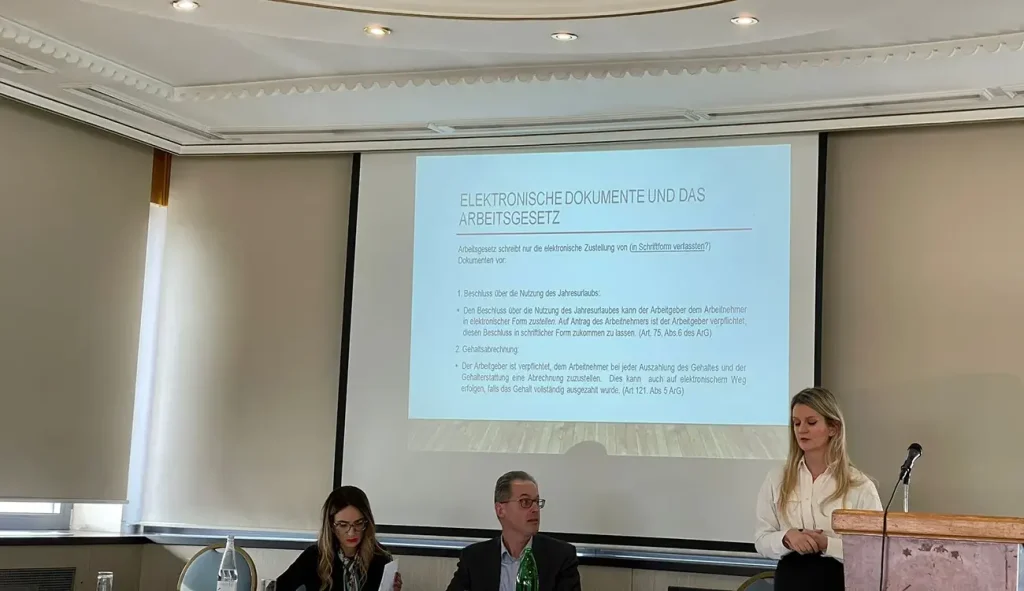In this cycle of our legal blogs #StartYourBusiness, we strive to provide essential information on commencing business operations in the Republic of Serbia.
Once a company is properly established in accordance with Serbian law LINK , certain post-incorporation steps should be followed within the defined timeline to ensure compliance with local legal requirements.
I. Registration of ultimate beneficial owner
Since 2018 and entering into force of Law on Central Records of Beneficial Owners, all legal entities which carry out their business in Serbia are obliged to register data on entities’ ultimate beneficial owner (UBO) in the Central Registry of Ultimate Beneficial Owners.
As company’s UBO is considered natural person:
(1) who is indirectly or directly the holder of 25% or more of the ownership interest, shares, voting rights or other rights, based on which he/she participates in the management of a company, or participates in the capital of a company with 25% or more shares;
(2) who indirectly or directly exerts prevailing influence over the conduct of business and decision-making;
(3) who indirectly secures or is securing funds for a company and thereby significantly influences the decision-making of the management body of the company when deciding on financing and business operations;
(4) who is the founder, trustee, protector, beneficiary – if designated, as well as a person holding a dominant position in managing a trust, or in other entity under foreign law;
(5) who is registered as company’s legal representative if the legal representative has failed to designate another natural person as the beneficial owner.
The Central Registry of UBOs is kept exclusively in electronic form, and therefore registration of data requires the electronic signature of the company’s legal representative (managing director). However, electronic signature must be issued by certification entities established in the Republic of Serbia, and therefore electronic signature issued abroad is not acceptable.
Newly established companies are obligated to register data on ultimate beneficiary owner no later than 15 days after the company’s registration in the Registry of Business Entities.
Failure to register required data or registration of incorrect data may result not only in monetary fines, but also in imprisonment of responsible persons.
II. Duties to the Tax Authorities
Newly established companies are obligated to file advanced tax application for corporate income tax no later than 15 days upon registration of the company in Registry of Business Entities. The purpose of this advanced tax application is to assess the anticipated profitability of the company during its initial year of business operations. This action may be carried out by the proxy holder and therefore, engaging an accountant or other expert in the field of finance in a timely manner may be of significant meaning.
Failure to file tax statement within provided deadline can lead to misdemeanor monetary fine amounting to 100.000,00 RSD (appx. 850,00 EUR)
Moreover, companies are required to submit to the Tax Administration a contract detailing the basis on which they use office premises, unless the premises are owned by the company itself. In broad terms, there are two prevailing types of contracts:
- Lease contract / Sub-lease contract (if the landlord is natural person, company is obliged to pay lease tax directly to Tax Authority at the rate of 20% of rent),
- Contract on use of business premises free of charge.
III. Opening a bank account
According to our broad practice, opening a bank account can often be unexpected hurdle when setting up a company in Serbia. Even though the company can be registered only in few days, opening a bank account sometimes require several months, depending on the complexity of ownership structure.
Due to strict anti-money laundering polices (AML), banks are obliged to collect data on ownership structure for all entities in ownership chain, up to the natural person who is determined as UBO (see point 1 above). Therefore, providing accurate data on UBOs in the Central Register of UBOs is also very important for the process of opening a bank account, as these data must comply with information provided to the bank.
Documentation on which basis bank determines UBOs may vary, depending on various facts. However, certain exceptions are applicable for stock listed companies.
IV. Contract with company’s managing director
According to the Official Opinions of Ministry of Finance of the Republic of Serbia and Ministry of Labor, Employment, Veteran and Social Affairs, company’s director is entitled to fair compensation for performing his/her functions and can not waive this right. Therefore, the company is obliged to enter into an agreement with its director, as of company’s registration and to pay related tax and contributions for mandatory social insurances.
Types of contracts which company may conclude with its director are regulated by Labor Law of RS and there are two available options:
- Concluding an employment agreement, which may be concluded as fixed term, or non-fixed term contract,
- Concluding a contract on director’s rights and duties (so called MD-Contract), which does not establish an employment relationship between company and director.
V. Preparing of necessary documentation
Which documents companies must have under Serbian law is very broad question, as it depends on various factors, such as scope of business activity, number of employees, anticipated income etc.
Generally said, it is recommended that for start of the business, company already has prepared:
- Draft of the fixed term and non-fixed term employment contract,
- Contract with managing director,
- Handbook on work regulations,
- Handbook on job classification,
- Notification to employees regarding prevention of mobbing at work,
- Notification to employees on rights of whistleblower,
- Rulebook on internal whistleblowing procedure,
- Rules on fire protection,
- Decision on appointment of person in charge of HSE issues,
- Risk assessment act (HSE)
This list aims to provide just a brief overview of relevant documents and does not include a full compliance requirements list. For more information, please contact our law office at office@vrlegal.rs .







